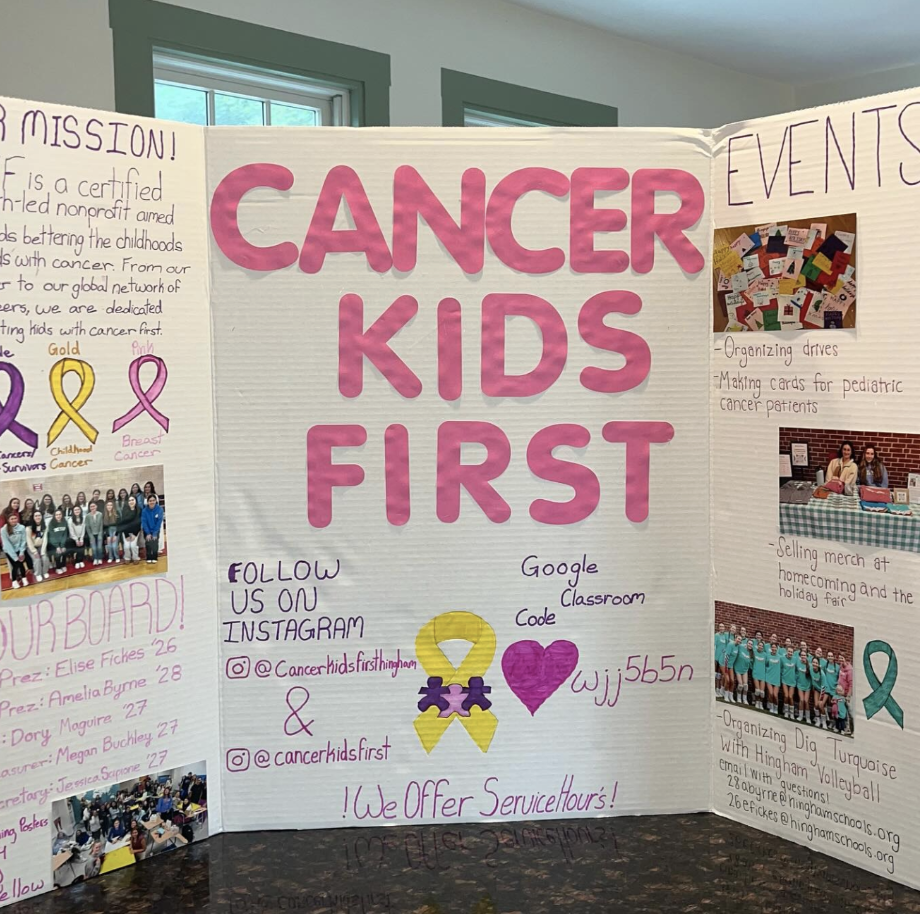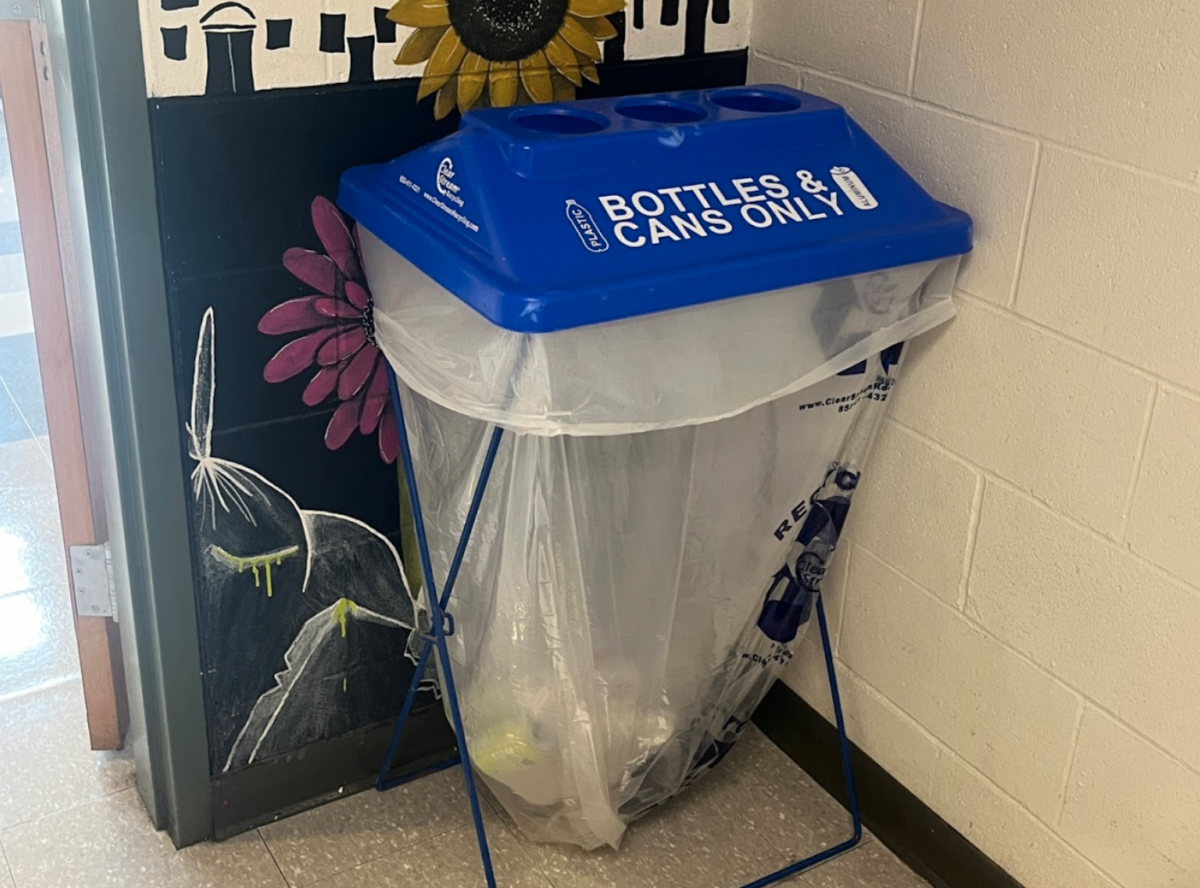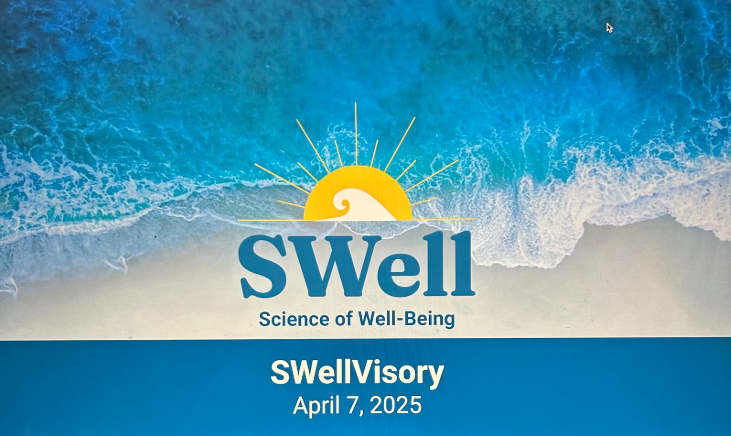SWell is an acronym that means Science of Well-Being. SWell started five years ago in a class at Yale University. Dr. Laurie Santos observed that her students were becoming more and more stressed, which led to a rise in mental health issues. She started a class that had to do with mental health and the science behind it. It soon became the most popular class in Yale’s 300 year history. This high desire to attend her class caused her to create a modified, online version of SWell, for high school students. This online program is filled with “pro tips” to deal with stress, difficult emotions, and negative thoughts.
At Hingham High School, SWell is being offered as a new after-school class. The program is sponsored by the HPS Wellness Committee and is funded by the Town of Hingham Mental Health Task Force. Over eight weeks, students take the on-line course from Yale and meet on Wednesday nights to talk about what they’re learning, to practice the “pro-tips” from the course, and to connect with each other about relatable topics. Students do not get school credit for SWell, but they are able to add something unique to their high school resume and the ability to earn a Yale Course Certificate.
On April 7, 2025, all freshmen got together with their advisory groups to learn about SWell. During this presentation, the advisors went through a slideshow explaining what stress is, the importance of not comparing yourself to others, and sleep. After reviewing some of the questions on the Youth Risk Behavior Survey from last year, grades and GPAs were the number one stressors for students at Hingham High School. Then, not enough time, parental pressures and expectations, extracurriculars, and relationships were the following top stressors.
Freshman Dee Sweeny said, “It was really interesting to see how the highest percent of stress came from school.” Stress is our body’s way of dealing with a threat. It is a trait that we have inherited from our ancestors because our amygdalas are programmed with a fight or flight response triggering our stress to be increased. The main problem is that our amygdala can’t tell the difference between a real threat, like a tiger, or a small, daily problem, like out to-do-lists.
Theodore Roosevelt once said, “Comparison is the thief of joy.” Our brains are constantly evaluating, judging, and seeing how we stack up against others. Now that social media is more prominent in teenagers’ lives, kids as young as 10 and 12 are constantly comparing themselves to others. Learning how to avoid this mental health trap can be a helpful tool for people of any age.
Sleep has also been documented as one of the most important factors relating to our mental health. The amount of sleep we get affects our ability to focus, our mood, performance, and our emotional balance. While we sleep, our brains are organizing information from the day, processing emotions, and storing memories. High school students should sleep about eight to nine hours per night. However, according to the Youth Behavior Risk Survey taken last year, only about 30 percent of students are actually getting eight hours of sleep. This is detrimental to teenagers because most teenagers’ lives are filled to the brim with activities, and not having the full eight hours will affect how and if they are able to do these tasks.
Also during the presentations, students were given different tips and tricks to deal with stress, their sleep, and comparisons. Managing stress can be difficult, but focusing on your breath can allow you to reset. Even taking one deep breath can signal to our brains that we are safe, helping us feel calmer. The 4-7-8 method and belly breathing are both techniques to control your breath. The 4-7-8 breathing entails breathing in for four seconds, holding it for seven, and then releasing it for eight seconds.
Belly breathing is a practice where you pretend to fill up a balloon in your abdomen, and then breathe out hard for five seconds. Another Pro-Tip to manage your stress is to reframe whatever is stressing you in a way that is less negative. By turning your thoughts from “this stress is debilitating” to “this stress is enabling,” your stress is reduced a lot.
According to SWell, the first step to not comparing yourself is to first catch yourself when you are. This simple act helps reduce the negative impact of the comparison. Freshmen Paige Bartlett said, “During the SWell presentation, I became aware that I compare myself much more than I should and now I am able to stop myself before I lose my happiness to somebody else.” The second tip is to make sure your feed on social media is a diverse variety of people and ideas. This keeps you from comparing yourself to the same people over and over again.
A very important factor for sleep is your phone. Studies have shown that having your phone by your bed impacts how long you sleep and the quality of your sleep. Even when phones are on Do Not Disturb or turned off, people still sleep worse when their phones are in their rooms. So, by keeping your phone in a different room at night, your sleep schedule will become more regular and more efficient. At the end of the presentation, all students were given a little treat, including a pen, thank you note, sticky notes, and candy. SWell is a great program and the students of Hingham High School should definitely consider taking the class.
































